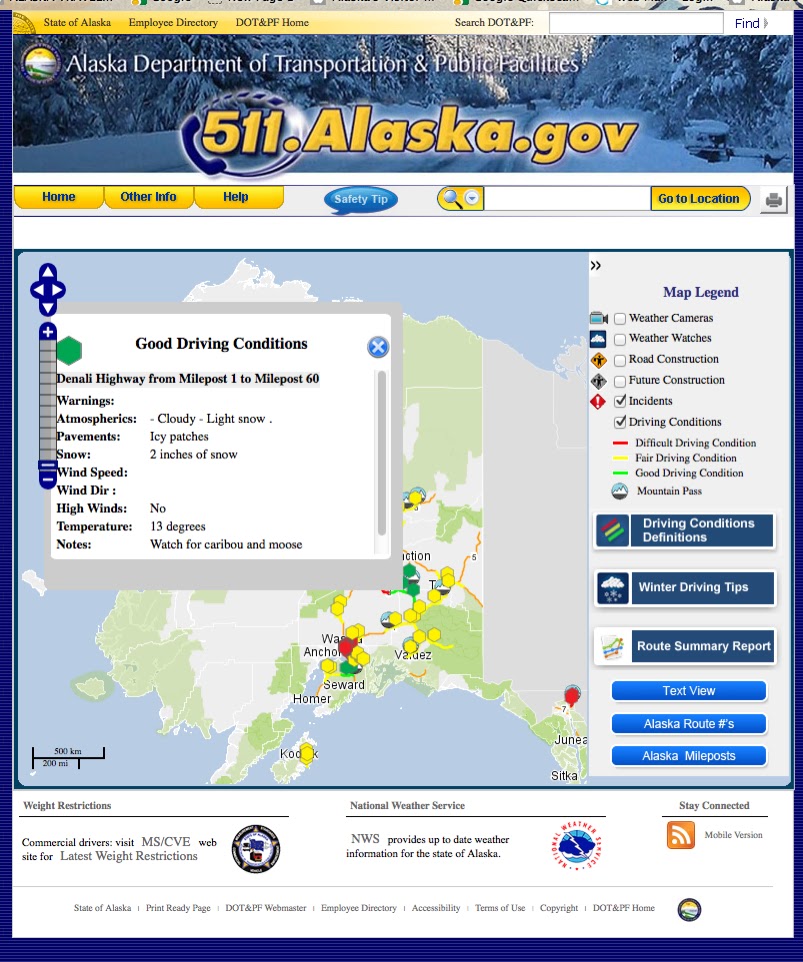Alaska Senate & Alaska House Vote to Increase Public School Funding Formula. Dunleavy Threatens Veto
The Alaska State Senate Passed A Comprehensive School Package & Sent It To Governor. On Tuesday, February 27 Gov. Mike Dunleavy Threate...
https://www.countryjournal2020.com/2024/02/with-bipartisan-action-alaska-house.html
The Alaska State Senate Passed A Comprehensive School Package & Sent It To Governor.
On Tuesday, February 27 Gov. Mike Dunleavy Threatened To Veto The Bill Unless It Is Revised.
 |
| Members of the Alaska House of Representatives watch as the votes are tallied Thursday, Feb. 22, 2024, for Senate Bill 140. (Photo by James Brooks/Alaska Beacon) |
The Alaska House of Representatives ended days of deadlock with an unusual bipartisan triumph late Thursday, voting 38-2 to authorize a major increase in the state’s funding formula for public schools.
“I’ve been around for a few years, and tonight really is a historical night. We have flipped the script of a major omnibus bill by doing it early in the session,” said Rep. Bryce Edgmon, I-Dillingham and a House member since 2007.
“We came together: Republicans, Democrats, independents, nonpartisans, and we got something done,” said Rep. Mike Cronk, R-Tok.
The $680 increase to the state’s base student allocation, contained in the version of Senate Bill 140 that passed the House on Thursday night, is the largest nominal bump in state history.
It’s also somewhat of a disappointment for education advocates, because it’s less than half of the $1,413 increase needed to make up for inflation since 2015.
The bill contains some, but not all, of the education provisions sought by Republicans and Gov. Mike Dunleavy, which disappointed Republican members of the House, but not enough for most of them to vote “no.”
Reps. David Eastman, R-Wasilla, and Mike Prax, R-North Pole, were the lone votes against the final bill.
“Six hundred eighty dollars is the bare minimum. It should be much higher. But it’s remarkable to see,” said Rep. Genevieve Mina, D-Anchorage.
In Juneau, where the local school district has been facing a multimillion-dollar deficit, the increase likely isn’t enough to forestall school closures, said Rep. Sara Hannan, D-Juneau.
“In the best-case scenario, we close only a couple schools,” she said.
Schools are also likely to close in Fairbanks, said Rep. Ashley Carrick, D-Fairbanks.
“Very seldom do you get everything you want. This is one of those examples,” said Rep. Craig Johnson, R-Anchorage.
It has more funding for student transportation, for internet access at rural schools, a new method for appealing school districts’ termination of charter schools and additional funding for homeschooled students in state correspondence programs.
It lacks Dunleavy’s proposal to offer bonuses to certified teachers and staff. An amendment from Rep. Mike Cronk, R-Tok, that would have added bonuses to the bill was defeated by a single vote, 20-20.
Several Republicans, including Rep. Kevin McCabe, R-Big Lake, voted for the bill despite the absence of the bonus item and other provisions they supported.
“The original bill was a good compromise; this is not a good compromise,” he said, referring to a version of the bill that the House failed to adopt on Monday and included more Republican priorities.
The version of Senate Bill 140 passed by the Senate last year contained only a funding increase for rural-school internet. Before the 2023 legislative session ended, the House Finance Committee amended it to add student-transportation money and a $640 increase to the base student allocation.
That version didn’t see a final vote in 2023, and after the 2024 legislative session began, the House Rules Committee amended SB 140 again, this time to include Republican-favored ideas, some of which were proposed by Dunleavy as separate bills. That version of the bill also included a smaller bump to the base student allocation, $300 instead of $680.
In a conference with reporters, Dunleavy referred to the result as “our bill” and said in a separate interview that he would veto an increase to the base student allocation if it arrived at his desk as a standalone item and not part of a comprehensive package.
But when that version of SB 140 hit the House floor, it failed to advance by a single vote. The House Finance Committee’s version also died in a 20-20 vote.
That left House lawmakers to build a new version of SB 140 from scratch by amending the Senate’s original bill on the House floor.
From Monday through Thursday, floor sessions were either delayed or saw little progress, leaving the bill in limbo.
A 24-hour negotiation sprint between Wednesday and Thursday broke the deadlock, as members of the House’s predominantly Democratic minority dealt with members of the predominantly Republican House Majority and three delegates from the Senate’s bipartisan supermajority.
“I think they wanted a package. Things were stuck and there were a lot of meetings that occurred in the last 24 hours,” said Senate Rules Committee Chair Bill Wielechowski, D-Anchorage.
The result: Rep. Stanley Wright, R-Anchorage and a member of the majority, introduced an amendment that contained the $680 base student allocation increase, plus revised versions of items that Republicans backed.
The House adopted that amendment on a 36-4 vote, with Reps. George Rauscher, R-Sutton; Sarah Vance, R-Homer; Prax; and Eastman voting “no.”
The Alaska House of Representatives ended days of deadlock with an unusual bipartisan triumph late Thursday, voting 38-2 to authorize a major increase in the state’s funding formula for public schools.
“I’ve been around for a few years, and tonight really is a historical night. We have flipped the script of a major omnibus bill by doing it early in the session,” said Rep. Bryce Edgmon, I-Dillingham and a House member since 2007.
“We came together: Republicans, Democrats, independents, nonpartisans, and we got something done,” said Rep. Mike Cronk, R-Tok.
The $680 increase to the state’s base student allocation, contained in the version of Senate Bill 140 that passed the House on Thursday night, is the largest nominal bump in state history.
It’s also somewhat of a disappointment for education advocates, because it’s less than half of the $1,413 increase needed to make up for inflation since 2015.
“Six hundred eighty dollars is the bare minimum. It should be much higher. But it’s remarkable to see,” said Rep. Genevieve Mina, D-Anchorage.
In Juneau, where the local school district has been facing a multimillion-dollar deficit, the increase likely isn’t enough to forestall school closures, said Rep. Sara Hannan, D-Juneau.
“In the best-case scenario, we close only a couple schools,” she said.
Schools are also likely to close in Fairbanks, said Rep. Ashley Carrick, D-Fairbank
The bill contains some, but not all, of the education provisions sought by Republicans and Gov. Mike Dunleavy, which disappointed Republican members of the House, but not enough for most of them to vote “no.”
Reps. David Eastman, R-Wasilla, and Mike Prax, R-North Pole, were the lone votes against the final bill.“Very seldom do you get everything you want. This is one of those examples,” said Rep. Craig Johnson, R-Anchorage.
It has more funding for student transportation, for internet access at rural schools, a new method for appealing school districts’ termination of charter schools and additional funding for homeschooled students in state correspondence programs.
It lacks Dunleavy’s proposal to offer bonuses to certified teachers and staff. An amendment from Rep. Mike Cronk, R-Tok, that would have added bonuses to the bill was defeated by a single vote, 20-20.
Several Republicans, including Rep. Kevin McCabe, R-Big Lake, voted for the bill despite the absence of the bonus item and other provisions they supported.
“The original bill was a good compromise; this is not a good compromise,” he said, referring to a version of the bill that the House failed to adopt on Monday and included more Republican priorities.
The version of Senate Bill 140 passed by the Senate last year contained only a funding increase for rural-school internet. Before the 2023 legislative session ended, the House Finance Committee amended it to add student-transportation money and a $640 increase to the base student allocation.
That version didn’t see a final vote in 2023, and after the 2024 legislative session began, the House Rules Committee amended SB 140 again, this time to include Republican-favored ideas, some of which were proposed by Dunleavy as separate bills. That version of the bill also included a smaller bump to the base student allocation, $300 instead of $680.
In a conference with reporters, Dunleavy referred to the result as “our bill” and said in a separate interview that he would veto an increase to the base student allocation if it arrived at his desk as a standalone item and not part of a comprehensive package.
But when that version of SB 140 hit the House floor, it failed to advance by a single vote. The House Finance Committee’s version also died in a 20-20 vote.
That left House lawmakers to build a new version of SB 140 from scratch by amending the Senate’s original bill on the House floor.From Monday through Thursday, floor sessions were either delayed or saw little progress, leaving the bill in limbo.
A 24-hour negotiation sprint between Wednesday and Thursday broke the deadlock, as members of the House’s predominantly Democratic minority dealt with members of the predominantly Republican House Majority and three delegates from the Senate’s bipartisan supermajority.
“I think they wanted a package. Things were stuck and there were a lot of meetings that occurred in the last 24 hours,” said Senate Rules Committee Chair Bill Wielechowski, D-Anchorage.
The result: Rep. Stanley Wright, R-Anchorage and a member of the majority, introduced an amendment that contained the $680 base student allocation increase, plus revised versions of items that Republicans backed.
The House adopted that amendment on a 36-4 vote, with Reps. George Rauscher, R-Sutton; Sarah Vance, R-Homer; Prax; and Eastman voting “no.”The amendment was the final action before the bill advanced to and through its last vote on the House floor. It will return to the Senate, and Wielechowski said he expects senators to approve it as soon as Monday.
It was not clear on Thursday whether Dunleavy will veto the bill. An email to his office went unanswered, and legislators said they weren’t sure about his intentions.
The revised base student allocation is still subject to the state’s normal budget process and could be fully or partly funded. A $680 increase is almost $200 million.
The total base student allocation would be $6,640, though the actual amount school districts receive per student will be higher once adjustments are made for various factors, including the size of schools, local costs and the number of students with special needs.
Wielechowski said he’s confident that the state has enough revenue to pay for the cost, which is already being included in budget documents being drafted within the Capitol.
The budget is subject to the governor’s line-item veto power, however, and even if the bill becomes law, the governor could choose to veto part of the school funding line.
Any decision along those lines is months away, however, and Thursday night’s mood in the House was celebratory, mixed with some exhaustion after several long nights of debate.
“I’d like to congratulate everyone on a major piece of legislation tonight, but I want to offer a little bit of a warning,” said Rep. Tom McKay, R-Anchorage and chair of the House Resources Committee. “Our next major challenge is going to be energy … Let’s come up with an energy plan so the BSA that we fought so hard for tonight isn’t going to be wasted.”
SEE ALASKA BEACON STORY HERE: https://alaskabeacon.com/2024/02/22/with-bipartisan-action-alaska-house-votes-to-increase-public-school-funding-formula/















